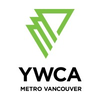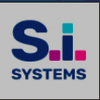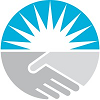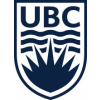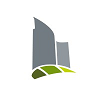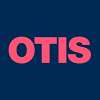Please note, this document contains references to residential schools and Indian hospitals.
Territorial Acknowledgment
YWCA Metro Vancouver respectfully acknowledges that our main office and many of our programs are located on the traditional, ancestral and unceded territories of the xʷməθkʷəy̓əm (Musqueam), Sḵwx̱wú7mesh (Squamish) and səlilwətaɬ (Tsleil-Waututh) Nations, and that our work across British Columbia spans the territories of more than 200 First Nations.
We also acknowledge the First Nations, Metis and Inuit peoples who live in our communities.
Purpose of the Research Project The overarching purpose of this research is to uncover YWCA Metro Vancouver’s involvement in Indian residential schools, Indian hospitals and practices of assimilation to understand and acknowledge the truth of our history;
work towards healing relationships with Indigenous and First Nations communities; and plan for redress.
Issued on : August 1, 2024
PROJECT BACKGROUND
In 2023, YWCA Metro Vancouver initiated a multi-phase research project to better understand our relationship to residential schools and Indian hospitals, our complicity in practices that encouraged assimilation and their impacts, and then to identify potential steps for apology and redress.
In Phase 1, with a grant from the UBC Community University Engagement Support Fund, the YWCA partnered with UBC Library and Rare Books and Special Collection to catalogue, preserve and make our records available to the public.
With guidance from a YWCA internal working group and an external advisory council made up of individuals with lived and professional experience, we hired Reciprocal Consulting Inc.
to develop the YWCA Archives Research Plan to guide the next phase of the project. The Research Plan includes a proposed methodology for engaging in this archival project in alignment with Indigenous data sovereignty principles and ethics.
PHASE 2 : RESEARCH (Current Phase)
We are seeking a researcher to lead Phase 2 of the Archives Project. Using the Research Plan as a guide, the researcher will conduct a thorough exploration into the organization’s archival materials to document, summarize and interpret the organization’s relationship with Indigenous communities, using a gendered lens.
As a historically Christian-guided institution, the YWCA served the community through the decades where residential schools and Indian hospitals existed across the province.
From preliminary scans, we are aware that our archives and the national archives contain information pertaining to Indigenous women and girls and the organization’s practices of assimilation by providing Indigenous women and girls with housing and other programs.
This phase of the project will primarily focus on the organization’s archives. However, additional materials may include written and oral records from the national archives, municipalities, religious institutions, medical centres, First Nations communities, libraries, and more.
We expect the researcher to work collaboratively with the YWCA’s internal working group and advisors to define scope and establish parameters for Phase 2 of the project.
OUTCOMES
Based on the archival materials, the researcher will apply a gendered lens to summarize the evolving relationship between the YWCA and Indigenous communities, acknowledging the truth of the organization’s role in assimilation and the continued impact as it relates to Indigenous women and girls.
Applying OCAP® Principles and CARE Principles, the researcher / s may :
Catalogue and describe archival materials that refer to Indigenous women and girls, and that are relevant to the project purpose (this could be at the item or file level, depending on a preliminary scan of the finding key)
With guidance from the YWCA, uphold protocols and invite Indigenous communities to share and contextualize with oral stories, records, or archives that could further uncover the YWCA’s involvement in residential schools, Indian hospitals and other colonial or assimilation practices
- Connect with other researchers and institutions, where applicable
- Be mindful of and follow protocols for consultation and engagement with Nations on whose territories the YWCA operates and / or Nations or communities referenced in archival materials
- Identify gaps in materials and make recommendations for further research (e.g., national archives)
- Identify nuances in what has been purposefully omitted in the archives
- Deliver a final report that summarizes the findings (in a format chosen by all rights holders)
- Provide guidance and recommendations on next steps for community reconciliation and redress
TASKS AND TIMELINE
Please note : Throughout the course of the research phase, the archives working group will continue to focus on building and deepening relationships with Host First Nations, Indigenous-led organizations and Indigenous communities.
After the research phase, the archives working group will initiate a community engagement phase to share the findings, hear from community and create a redress plan.
Archival research
- Using the research plan as a guide and in consultation with the working group, scope research, establish research questions and plan project
- Attend meetings, as necessary
- Scan YWCA archival materials stored at UBC
- Catalogue and describe materials that are relevant to the project objective
- Identify and explore other public archives as needed
months
Analyze information
- Analyze gathered materials and identify gaps
- Provide updates to the YWCA on progress and share back high-level findings
Months
Report Writing
- Determine report format in collaboration with the YWCA and potential community partners
- Draft and finalize report for review and feedback
- YWCA to determine dissemination and engagement plan (in consultation with researcher)
months
Recommendations for Reconciliation and Redress
Using existing examples and considering the organization’s unique presence in the community, help conceptualize a plan that the organization can use to move forward in the spirit of Reconciliation, including guidance on further research, and engagement and redress to individuals and communities impacted by the YWCA’s historical actions
months
BUDGET
$38,500 - $45,000
SUBMISSION INSTRUCTIONS
You are invited to submit a proposal for Phase 2 of the Archives Research Project. Please note that preference will be given to Indigenous applicants.
The interested candidate’s proposal must include the following :
A demonstration of your expertise in addressing issues related to Indigenous history, archival research, trauma-informed research and knowledge on how to implement OCAP® Principles and CARE Principles
- An outline that includes your approach to the research, proposed activities and timeline and, using the range provided in this RFP, a budget for the completion of the work
- A demonstrated understanding of the steps and capacities needed to conduct a research project of this size (possibly including additional researchers, or experts)
- One to two examples of previous research
- Two references
EVALUATION CRITERIA
Alignment with the objectives and scope of the research.
Demonstrated connection to Indigenous communities and expertise in Indigenous research methodologies, community engagement, trauma informed approaches, OCAP principles, as well as a demonstrated ability and capacity to understand diversity of Indigenous protocols.
Capacity to conduct research within the specified timeline and budget.
Relevance of previous research examples and references.
